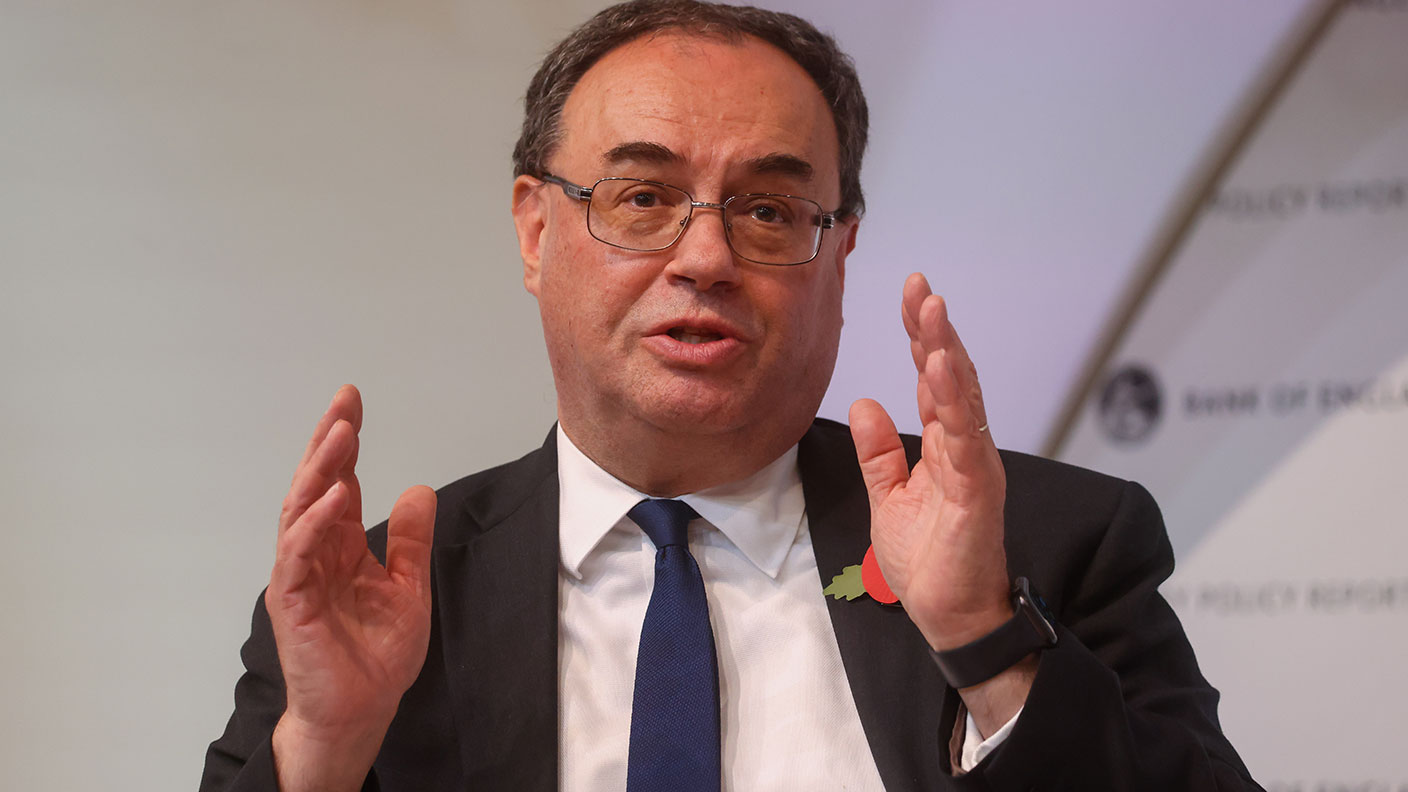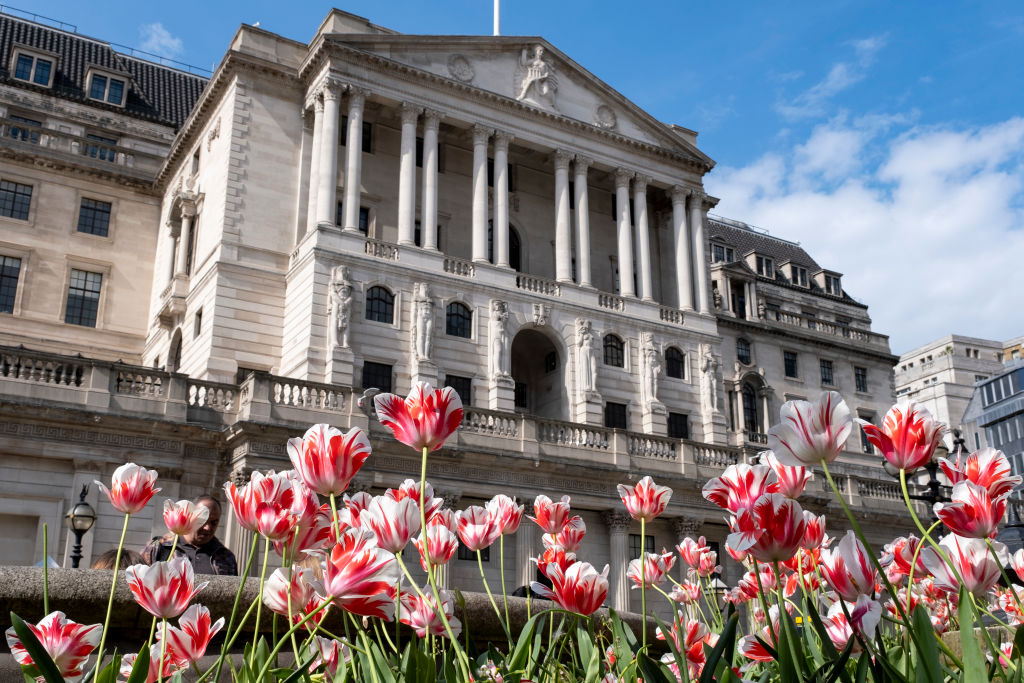UK inflation hits a 30-year high – but will the Bank of England raise interest rates?
UK inflation is now rising at a rate of 5.1% a year – its highest in 30 years and a lot higher than the Bank’s target of 2%. So, asks John Stepek, will the Bank of England Raise interest rates?


Get the latest financial news, insights and expert analysis from our award-winning MoneyWeek team, to help you understand what really matters when it comes to your finances.
You are now subscribed
Your newsletter sign-up was successful
Want to add more newsletters?

Twice daily
MoneyWeek
Get the latest financial news, insights and expert analysis from our award-winning MoneyWeek team, to help you understand what really matters when it comes to your finances.

Four times a week
Look After My Bills
Sign up to our free money-saving newsletter, filled with the latest news and expert advice to help you find the best tips and deals for managing your bills. Start saving today!
The Bank of England is meeting this Thursday to decide whether or not to raise interest rates.
This morning, we learned that annual inflation is rising at well over twice the Bank’s target rate.
So the fact that a rate rise (from the current record emergency low level of 0.1%) is not a foregone conclusion, gives you some idea of just how extraordinary conditions are right now.
MoneyWeek
Subscribe to MoneyWeek today and get your first six magazine issues absolutely FREE

Sign up to Money Morning
Don't miss the latest investment and personal finances news, market analysis, plus money-saving tips with our free twice-daily newsletter
Don't miss the latest investment and personal finances news, market analysis, plus money-saving tips with our free twice-daily newsletter
Figures for last month show that the consumer price index (CPI) is now rising at a rate of 5.1% a year. That’s not only a lot higher than the Bank’s target of 2% (not to mention the upper band of 3% at which it has to start writing letters to the chancellor), but it’s also much higher than analysts had expected.
Indeed, it’s the highest it's been since September 2008, when it hit 5.2% (and prior to that one-off freak reading, you have to go back to March 1992, when CPI was rising at 7.1%).
Meanwhile, if you still pay attention to the old Bank of England target measure, now disdained as unworthy of the statistical stamp of approval, things look even worse.
Until December 2003 the Bank targeted RPIX, which is the retail price index, excluding mortgage interest payment costs. (Why do you exclude mortgage interest costs? Because if you put interest rates up to try to tackle inflation, that’ll then push up mortgage interest costs, which in turn means you actually make the inflation figures look worse if you don’t adjust for it.)
Anyway, the Bank used to use RPIX for its inflation target, and the target was a bit higher, at 2.5%. RPIX is now rising at an annual rate of 7.2%, the highest level since March 1991, and almost treble the old target rate.
This throws the latest data on wages – which showed them rising at 4.9% a year in the quarter through October – into stark relief. At this rate, you’re still not getting a pay rise in “real” terms. Meanwhile, with double-digit house price inflation, you’ve not got much luck on that front either.
The Bank of England is taking a real risk if it doesn’t act
Why might the Bank not raise rates? Omicron is the obvious excuse. The new variant (combined, a cynic might argue, with purely political woes) has catapulted the government into what can only be described as a stealth Christmas lockdown. The Bank may be very reluctant to make any move on interest rates at a time when economic activity is being crimped by a mixture of confusion, fear and frustration.
You can also argue that a rate rise does nothing. And in practical terms, that’s true. Raising rates right now won’t do much to change the things that are causing higher inflation in the immediate term. Supply chains won’t magically get unclogged because the Bank puts rates up to 0.25%.
However, when it comes to central banks, indications of intent matter. If the Bank essentially washes its hands of the idea that it can control inflation then that’s a pretty strong signal to the market that where inflation goes next could be anyone’s guess.
Much of what central banks did while the global economy was struggling to recover from the financial crisis was about confidence bolstering. For example, investors learned to assume that central banks would not let financial systems collapse, and as a result, the level of intervention required was minimised because markets panicked less.
If central banks act as though inflation is now beyond their control – even although deflation was equally beyond their control – then markets may well start to react as if it really is out of control. That risks currency sell-offs and potentially even bond market sell-offs.
That doesn’t seem likely right now, but we’re moving into a new era. The odds of mis-steps and nasty surprises are increasing. And unlike the Federal Reserve, the Bank of England doesn’t have the wiggle room for error that the world’s most important economy and global reserve currency gives the Fed.
Get the latest financial news, insights and expert analysis from our award-winning MoneyWeek team, to help you understand what really matters when it comes to your finances.

-
 Should you buy an active ETF?
Should you buy an active ETF?ETFs are often mischaracterised as passive products, but they can be a convenient way to add active management to your portfolio
-
 Power up your pension before 5 April – easy ways to save before the tax year end
Power up your pension before 5 April – easy ways to save before the tax year endWith the end of the tax year looming, pension savers currently have a window to review and maximise what’s going into their retirement funds – we look at how
-
 Why Scotland's proposed government bonds are a terrible investment
Why Scotland's proposed government bonds are a terrible investmentOpinion Politicians in Scotland pushing for “kilts” think it will strengthen the case for independence and boost financial credibility. It's more likely to backfire
-
 How have central banks evolved in the last century – and are they still fit for purpose?
How have central banks evolved in the last century – and are they still fit for purpose?The rise to power and dominance of the central banks has been a key theme in MoneyWeek in its 25 years. Has their rule been benign?
-
 UK to have highest inflation among advanced economies this year and next, says IMF
UK to have highest inflation among advanced economies this year and next, says IMFThe International Monetary Fund (IMF) says it expects inflation to remain high in the UK, while lowering economic growth forecasts for 2026.
-
 Is Britain heading for a big debt crisis?
Is Britain heading for a big debt crisis?Opinion Things are not yet as bad as some reports have claimed. But they sure aren’t rosy either, says Julian Jessop
-
 'Britain is on the road to nowhere under Labour'
'Britain is on the road to nowhere under Labour'Opinion Britain's economy will shake off its torpor and grow robustly, but not under Keir Starmer's leadership, says Max King
-
 'Governments are launching an assault on the independence of central banks'
'Governments are launching an assault on the independence of central banks'Opinion Say goodbye to the era of central bank orthodoxy and hello to the new era of central bank dependency, says Jeremy McKeown
-
 Why investors can no longer trust traditional statistical indicators
Why investors can no longer trust traditional statistical indicatorsOpinion The statistical indicators and data investors have relied on for decades are no longer fit for purpose. It's time to move on, says Helen Thomas
-
 Live: Bank of England holds UK interest rates at 4.5%
Live: Bank of England holds UK interest rates at 4.5%The Bank of England voted to hold UK interest rates at their current level of 4.5% in March, as widely anticipated, after inflation rose to 3% in January